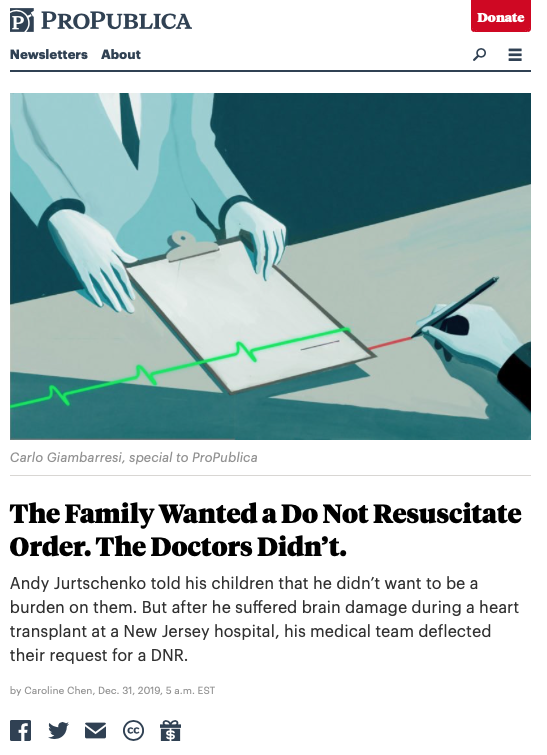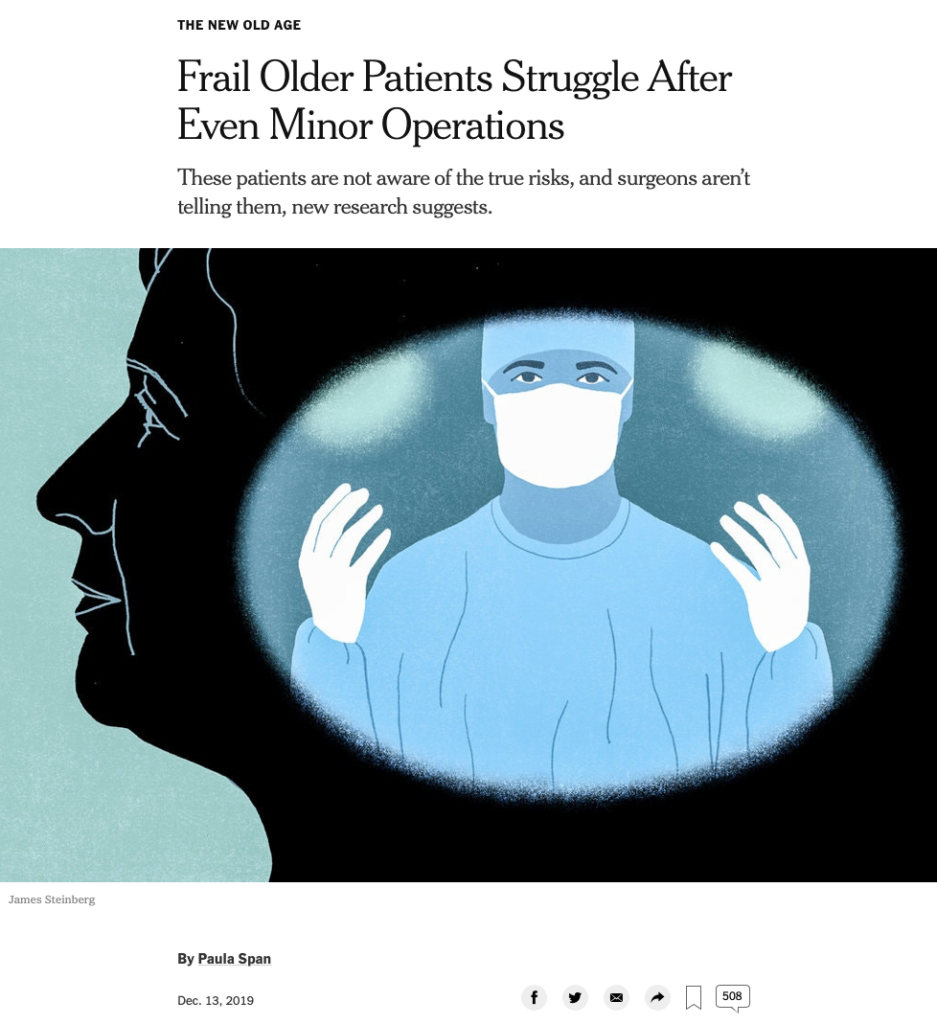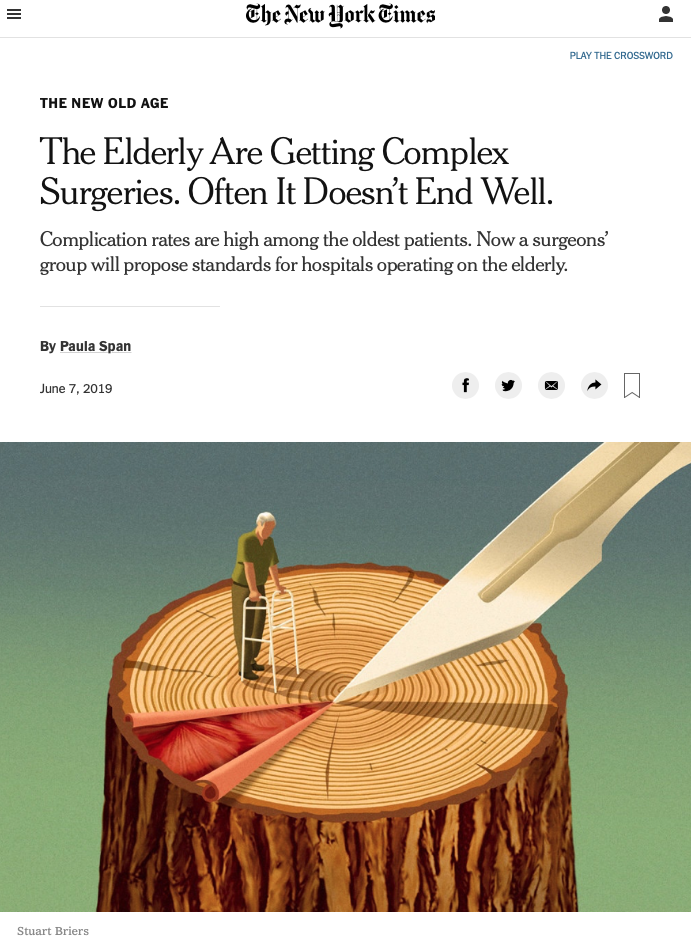Author: Nathan Baggett

WORT FM Interview: When Healthcare Is A Waiting Game: Routine Medical Procedures During COVID-19
Dr. Schwarze discussed the effects of COVID-19 on non-coronavirus patients with WORT news public affairs director Chali Pittman. Listen to the discussion using the player below or on the WORT FM Website.

ProPublica: The Family Wanted a Do Not Resuscitate Order. The Doctors Didn’t.
Dr. Schwarze was interviewed by Caroline Chen for this ProPublica article. You can read the full article here.
The surgeons “expressed significant emotional reaction,” including “betrayal, unhappiness, disappointment,” Schwarze reported. They felt that there was an implicit contract that patients entered into when signing up for surgery. One surgeon put it this way: “There is a commitment made by both the patient and the surgeon to get through the operation, as well as all of the post-operative issues that come up.” While acknowledging that they were being “paternalistic” and contradicting the patient’s directives, several of the surgeons in the study said they would refuse to withdraw life support in Schwarze’s scenario.

New York Times: Frail Older Patients Struggle After Even Minor Operations
Dr. Schwarze was featured in this New York Times article about the post-operative care of frail older patients. In the article, she discusses The Patient Preferences Project’s Question Prompt List Intervention that can help patients ask meaningful questions when deciding if surgery is right for them. You can read the article here.

GeriPal Podcast: Advance Care Planning before Major Surgery
Dr. Schwarze was a guest on the GeriPal Podcast to discuss advance care planning before major surgery. Check out the episode using the player below or on the GeriPal Website!

New York Times: The Elderly Are Getting Complex Surgeries. Often It Doesn’t End Well.
Dr. Schwarze was interviewed for this article in the New York Times about how surgery in older adults can lead to poor outcomes that may not be anticipated by patients and their family members.
The problem, said Dr. Schwarze, was that “the kind of language we use to explain surgery doesn’t really describe the experience.”

GeriPal Podcast: Uncertainty, Scenario Planning, and American Pie
Hear Dr. Schwarze discuss scenario planning and her New England Journal of Medicine paper titled “Managing Uncertainty: Harnessing the power of scenario-planning” on the GeriPal Podcast. You can listen to the episode using the player below or by visiting the GeriPal website.
The idea behind scenario-planning, which is what our paper is about, is that it’s not just about showing the limits of what’s possible, but also the story that unfolds along the way. I agree with you, physicians hate this idea of uncertainty, because we don’t want to be wrong, but we’re not asking people to be certain. What we’re asking people is to tell a story that’s plausible and that shows that there are limits on what’s possible to happen.
It’s not just where you end up, but the different things that will happen along the way, because if I think about my patient in the ICU who is in respiratory failure after surgery, I don’t know how that’s gonna go. He might get better and he might not. But I have to tell you, if the respiratory failure gets better, I can tell a pretty solid story about that’s gonna look like and how things are gonna be six months from now, a year from now, based on what I know about the patient. If the respiratory failure doesn’t get better, I can tell a pretty good story about that as well.
We’re not asking people to predict the future, but rather to tell a story that allows patients to understand a series of events that are likely to happen, once you’ve identified where there’s uncertainty.

New York Times: A Surgery Standard Under Fire
Dr. Schwarze was interviewed in this New York Times story about how the use of a 30-day mortality window in surgical report cards can lead to unacknowledged harm for patients.



